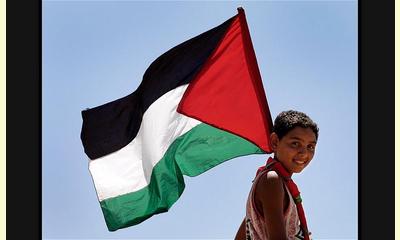|
|
Towards a Culture of Peace and Recognition: Palestine is a UNESCO Member State
un article par Ayman Qwaider
Palestine is the 195th state to join the United Nations Educational, Scientific and Cultural Organization, UNESCO. The admission of Palestine to the UNESCO family has given optimism and hope to Palestinians who believe in the mission of UNESCO “Building peace in the Mind of Men and Women”. The admission of Palestine is a symbolic victory not only for Palestinians, but also for the many nations around the world that voted for the recognition of accepting Palestine as the legitimate sovereign state of the Palestinian People. 
(c) Rusty Stewart photostream
click on photo to enlarge
While this vote did not result in the legal recognition of Palestinian sovereignty in the league of the United Nations, the large majority of nations that supported Palestine’s admission to UNESCO is symbolic of the overwhelming global support of Palestinian national rights and sovereignty.
In attempting to address issues of justice, conflict and peace between two parties, firstly the recognition and the acceptance of the other is paramount. Without acknowledging the rights and dignity of the other, how can justice ever prevail? It hasn’t for over 63 years, and it won’t until our recognition as a legitimate people; a legitimate people with full human rights and the right to statehood and self-governance is fully achieved in the United Nations General Assembly.
Our recognition and acceptance into UNESCO is a positive step in this direction.
Diplomacy in the world today is dominated by political and economic inequalities and interests, or what many great geopolitical analysts have coined “Realpolitik. Yet still, despite the very powerful interests at work in the geopolitical fold today, many of which have staunchly opposed the Palestinian initiative and demands for legal recognition of statehood within the UN; this acceptance of Palestine into UNESCO proves that there is a broad consensus on the question of Palestinian statehood. That consensus is now clearer than ever.
Recognition is a vital process towards justice. Peace is to justice as a fig is to the tree that flowers it. No long-lasting peace has ever endured without a strong foundation of justice and equity for all parties involved. We wholeheartedly appreciate the UNESCO family for their generous recognition, support and stand on the question of Palestine. We, the people of Palestine, commend you for your integrity, fairness and righteousness in supporting the cause for justice.
(Click here for a French version of this article)
|








|
DISCUSSION
Question(s) liée(s) à cet article:
Presenting the Palestinian side of the Middle East, Is it important for a culture of peace?
* * * * *
Commentaire le plus récent:
Presenting the Palestinian side from the blog of Mazim Qumsiyeh:
1- Palestine is the Western part of the Fertile Crescent: an area that includes Palestine, Jordan, Lebanon, Syria, and Iraq. In this Fertile Crescent the first human agriculture developed. Here the first domestication of animals (e.g. goats, donkeys, camels) and plants (e.g. wheat, barley, chickpeas, lentils, olives) happened.
2- This is also where civilization began including development of the first alphabet (by Phoenician Canaanites) and the first laws. It was where we first developed sciences like astronomy, engineering, and mathematics
3- The original inhabitants of the Western part of the Fertile Crescent were called Canaanites and the original language was called Aramaic which Jesus spoke (he was born in the country called then Palestine and thus he was Palestinian)
4- The old Aramaic language gave rise to derived languages including Syriac, Arabic, and Hebrew and this language group is called Semetic languages
5- Arabic alphabet evolved in Southern Canaan (today’s Jordan and Palestine) while the Latin alphabet evolved in Northern Canaan (Phoenicia, present day Lebanon and Syria). The Alphabet used in Europe today came from our part of the world.
6- The people of Southern Canaan including Palestine endured many invasions of armies with nearly 15 times that local people were ruled by kings or emperors (Persian, Roman, Umayyad, Abbasid, Israelite etc). . ... continuation.

|
|









